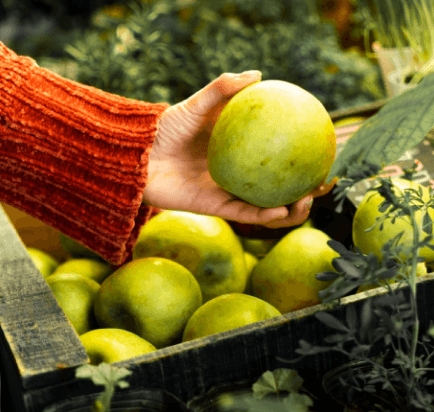Transforming The Food Supply Chain Towards More Sustainable
Module overview

Introduction to the Module
The European food industry is keenly interested in establishing more sustainable models of production and consumption on a global scale, in order to meet the challenges of the future, including the need to produce 70% more food to feed the 9 billion people that the Food and Agriculture Organization estimates will live on the planet by 2050. The European food system stands as a model of sustainable production and consumption, capable of meeting the growing needs of the world's population and ensuring the competitiveness of agri-food systems while respecting the environment, territorial communities, economic development, and social growth.
EU food & beverage sector plays a crucial role, as it contributes to food production, economic growth, and the preservation of culinary traditions. Recently, food supply chains have experienced several disruptive situations, from the COVID-19 pandemic to conflicts (Ukraine invasion from Russia and Israel-Palestinian one), which undermined their stability and at the same time highlighted their resilience. That is why, more than ever before, it is of paramount importance boosting the transition towards more Sustainable Food Systems (SFS).
Recent events have shown that a joint effort is needed to effectively face current and upcoming challenges and we cannot establish a truly sustainable food system on our own. An interdisciplinary vision and combined synergetic action by food producers, academia, research community, policymakers, and consumers are then paramount: they are all needed to reshare our future food system.
When it comes to sustainability, all its three pillars should be explored: environmental, economic, and social. Together, they can lead us in the right direction for the creation of more sustainable food models.
A more sustainable food system goes hand in hand with another shift, that is to say from linear to circular economy approach, and with the integration of the agri-food industry, biotechnologies, and the protection of biodiversity: all these features, which are now gaining momentum, are boosting the sustainability of food systems as they focus on reusing resources, nutrients and by-products, thus reducing waste. In addition, as Europe is willing to become the first carbon neutral continent, sustainable food production and consumption are critically important. The EU food and beverage sector is eager to positively contribute in a proactive way to the shift towards more sustainable food systems.
The learning objectives and the competence you will gain throughout this Module are:
- The features of Sustainable Food Systems. Open and transparent interaction among all actors of the food supply chain, policymakers, and academia are the basis for easing the transition toward more Sustainable Food Systems.
- Sustainability and its three pillars. Sustainability has become a priority also for consumers, as they are more and more willing to change their eating habits to reduce negative impacts on the planet.
- Biotechnologies. Biotechnologies have been in the spotlight as the EU Commission is following their application in the agri-food sector for several reasons: from enhancing the level of food safety to higher protection of the environment, thus boosting the transition towards greener food systems.